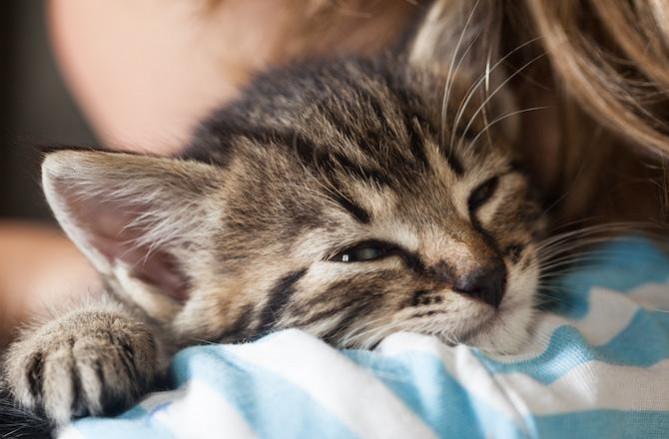Scientists in the US and Japan have documented new evidence that cats can readily become infected with the SARS-CoV-2 virus and may be able to pass the virus to other cats.

Published in the prestigious the New England Journal of Medicine, the study led by University of Wisconsin-Madison suggested that cats may be capable of becoming infected with the virus when exposed to people or other cats positive for SARS-CoV-2.
New research follows a study published in Science by scientists at the Chinese Academy of Agricultural Sciences that also showed cats (and ferrets) could become infected with and potentially transmit the virus.
"Cats are still much more likely to get COVID-19 from you, rather than you get it from a cat," said Keith Poulsen, director of the Wisconsin Veterinary Diagnostic Laboratory.
Yoshihiro Kawaoka, professor of pathobiological sciences at the University of Wisconsin's School of Veterinary Medicine led the study, in which researchers administered to three cats SARS-CoV-2 isolated from a human patient.
The following day, the researchers swabbed the nasal passages of the cats and were able to detect the virus in two of the animals.
Within three days, they detected the virus in all of the cats.
The day after the researchers administered virus to the first three cats, they placed another cat in each of their cages. Researchers did not administer SARS-CoV-2 virus to these cats.
Each day, the researchers took nasal and rectal swabs from all six cats to assess them for the presence of the virus.
"Within two days, one of the previously uninfected cats was shedding virus, detected in the nasal swab, and within six days, all of the cats were shedding virus. None of the rectal swabs contained virus," the study noted.
Each cat shed SARS-CoV-2 from their nasal passages for up to six days. The virus was not lethal and none of the cats showed signs of illness. All of the cats ultimately cleared the virus.
"That was a major finding for us -- the cats did not have symptoms," said Kawaoka.
"It's something for people to keep in mind. If they are quarantined in their house and are worried about passing COVID-19 to children and spouses, they should also worry about giving it to their animals," said Peter Halfmann, research professor at UW-Madison.
Both researchers advise that people with symptoms of COVID-19 avoid contact with cats.
They also advise cat owners to keep their pets indoors, in order to limit the contact their cats have with other people and animals.
There are confirmed instances of cats becoming infected because of close contact with humans infected with the virus, and several large cats at the Bronx Zoo in the US have also tested positive for the virus.
According to Ruthanne Chun, associate dean for clinical affairs at UW Veterinary Care, if your pet lives indoors with you and is not in contact with any COVID-19 positive individual, it is safe to pet, cuddle and interact with your pet.
"If you are COVID-19 positive, you should limit interactions with your pets to protect them from exposure to the virus," said Chun.














